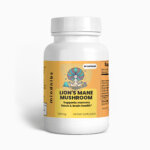
“Managing Stress: Natural Solutions for a Healthy Mind”
In today’s fast-paced world, it’s no surprise that stress has become a common problem for many people. The pressure to perform at work, maintain relationships, and deal with the challenges of daily life can take a toll on our mental and physical health. While many turn to medication or therapy to manage stress, there are also natural solutions that can be incredibly effective. In this article, we’ll explore some of the most powerful natural remedies for managing stress and helping you maintain a healthy, balanced mind. Whether you’re dealing with anxiety, depression, or simply feeling overwhelmed, these tools can help you find peace and clarity in the midst of chaos. So let’s dive in and explore some of the best ways to manage stress naturally!

1. Introduction: Unleashing the Benefits of Natural Stress Management
Stress has become a daily part of our lives, with work, family, and social pressure mounting on us. The discomfort caused by stress, over time, takes a toll on our physical and emotional health. To manage this stress, more and more individuals are looking towards natural stress management techniques as a healthier alternative to coping mechanisms such as alcohol and pills.
Natural stress management refers to utilizing organic or holistic methods of relaxation to reduce stress levels. These methods are safe, cost-effective, and can be practiced virtually anywhere. Some examples of natural stress management techniques include meditation, aromatherapy, and exercise. Adopting these methods into your daily routine can effectively reduce anxiety levels, improve mood, and provide a clearer state of mind.
Natural stress management is beneficial for long-term physical and emotional wellness. Not only does it alleviate the burden of stress, but it also helps individuals improve their overall well-being. Engaging in natural stress management techniques provides an opportunity for individuals to prioritize self-care and make active choices towards better health. With the plethora of benefits that natural stress management offers, it is no wonder that more individuals are beginning to shift towards a more natural approach towards managing stress.
2. Get Moving: The Role of Exercise in Mind and Body Wellness
Regular exercise is known to improve both physical and mental well-being. The American Heart Association recommends adults should perform at least 150 minutes of moderate exercise every week. Moderate exercise raises the heart rate, increases blood circulation thereby delivering more oxygen and nutrients to the brain and other parts of the body. Exercise also increases the production of endorphins that trigger a positive feeling in the body.
In addition to the immediate effects of exercise on mental wellbeing, research shows that exercise over a long period of time can lead to structural changes in the brain. It can help the brain cope with stress by increasing the number of neurons in the hippocampus, which is the area responsible for learning and memory. Regular exercise can reduce the risk of cognitive decline and dementia in older adults.
Getting regular exercise is essential to good health and mental wellness. It can improve heart health, emotional well-being, alleviate symptoms of anxiety and depression, and boost self-confidence. So, start small, with simple exercises like walking, jogging, or yoga, and gradually increase the intensity and duration of your workouts. Be consistent, make exercise a part of your daily routine, and enjoy the long-lasting benefits.
3. Calming the Mind: Relaxation Techniques to Recharge
In today’s world, it’s all too easy to feel frazzled and overwhelmed by the demands of daily life. Whether it’s work, family, or personal stressors weighing us down, it’s vital to find ways to relax and recharge our minds. There are plenty of relaxation techniques out there, but we’ve compiled a list of our favorites to help you start feeling calmer and more centered.
Meditation
- Find a quiet, comfortable space to sit or lie down
- Focus on your breath and clear your mind of any thoughts
- Start with just a few minutes each day, gradually increasing over time
Meditation has been proven to reduce stress, improve focus, and increase feelings of happiness. It’s a simple yet powerful way to calm your mind and recharge your spirit.
Progressive Muscle Relaxation
- Lie down in a comfortable position
- Tense up a muscle group, such as your shoulders
- Hold the tension for a few seconds, then release and relax the muscle group
- Repeat with other muscle groups, working your way down your body
Progressive muscle relaxation is an excellent way to release physical tension and bring a sense of calm to your mind. It can be particularly helpful for people who carry a lot of stress in their bodies.
Guided Imagery
- Find a quiet space to sit or lie down
- Choose a relaxing scene, such as a beach or a forest
- Imagine yourself in this peaceful setting, using all your senses to experience it fully
Guided imagery is a powerful way to calm your mind and transport yourself to a relaxing mental space. By using your imagination, you can reduce stress and relieve anxiety.
4. Nourish Your Body: Healthy Eating to Replenish Your Mind
Eating healthy is crucial for maintaining good mental health. Eating a well-balanced diet provides your body with the essential nutrients needed for optimal brain function. A diet rich in whole foods has been shown to reduce the risk of depression, anxiety, and other mental health problems. So, if you want to keep your mind healthy, make sure to nourish your body with good food.
To start eating healthier, consider adding more fruits, vegetables, and whole grains to your diet. These foods are high in vitamins, minerals, and fiber that support brain health. Leafy greens like spinach and kale are great sources of vitamin B6 and folic acid, which help regulate mood and decrease the risk of depression. Whole grains like brown rice and quinoa provide energy and keep you feeling full and satisfied.
Eliminating processed foods and drinks high in sugar and unhealthy fats can also make a significant impact on your mental health. These types of foods can cause inflammation in the body, which has been linked to depression and anxiety. Swap out sugary drinks for water or herbal tea and replace processed snacks with fruit or nuts. Small changes in your diet can lead to big improvements in your mood and overall well-being.
In conclusion, a healthy diet and good mental health go hand in hand. Eating a well-balanced diet consisting of whole foods, fruits, and vegetables provides your body with the essential nutrients it needs to support brain function and reduce the risk of mental health problems. Avoiding processed foods, sugar, and unhealthy fats can also make a significant impact on your mental health. So, choose to nourish your body with healthy foods that will replenish your mind!
5. Sleep Soundly: The Importance of Sleep in Stress Management
Getting enough good quality sleep is crucial to managing stress in a healthy way. Adequate sleep is essential for overall physical and mental health, and without it, your body and mind cannot function at their best. Here are some important reasons why proper sleep is critical for stress management:
- Restoration: Sleep is the time when your body repairs and restores itself, including your brain and central nervous system. This restoration is critical for physical and mental health, and missing just one night of sleep can cause a noticeable decline in cognitive function and mood. Without adequate restoration, you will be more vulnerable to stress and anxiety.
- Immunity: When you’re asleep, your immune system is hard at work fighting off viruses and other pathogens. Without sufficient sleep, your immune system becomes weakened, making you more susceptible to illnesses and infections, which can cause additional stress and anxiety.
- Mood: A good night’s sleep can have a significant impact on your mood and stress levels. Poor sleep can leave you feeling irritable, anxious, and moody, while proper sleep can help regulate mood, reduce stress levels, and enhance overall well-being.
In summary, getting enough good quality sleep is essential for managing stress effectively. By making sure you get adequate sleep each night, you can help your body and mind function at their best, boost your immunity, regulate your mood, and reduce your stress levels. If you’re struggling to get enough sleep, consider talking to your doctor or a sleep specialist to develop a plan that works for you.
6. Connect with Nature: The Healing Powers of the Outdoors
In this fast-paced world, we often forget the significance of nature, leaving us feeling stressed and overwhelmed. However, the calming power of the outdoors should not be underestimated. Connection with nature not only uplifts our mood but also boosts our mental and physical health.
Walking, cycling, or hiking can be ideal ways to experience the healing powers of nature. These activities not only strengthen our cardiovascular system but also help us to disconnect from our technological milieu. Studies have demonstrated that spending time in nature decreases stress levels, decreases blood pressure, and reduces anxiety and depression, among others. Taking in the beauty of natural surroundings encourages mindfulness and contributes positively to mental well-being.
As individuals, as a family, or as a group, we need to appreciate outdoor activities such as picnics, bird watching, and camping, as well as occasions to recharge mind and body. Nature does miracles for our lives, bringing balance and meaning to our hectic days. Introducing nature into our daily routine can lead to an improved physical, mental and emotional lifestyle. Isn’t it time for us all to ‘switch off’ from technology and bask in Mother Nature’s soothing touch?
7. Cultivate Mindfulness: Mastering the Art of Mindful Living for Holistic Health
Mindfulness is a form of meditation that can be practiced anytime, anywhere. It involves being present in the moment and paying attention to your thoughts, feelings, and surroundings. When you cultivate mindfulness, you become more aware of your own thoughts and emotions, which helps you respond to them in a more constructive way. This can lead to increased happiness, decreased stress, and improved physical health.
One way to practice mindfulness is through mindful breathing. This involves focusing your attention on your breath as you inhale and exhale. By doing this, you bring your mind back to the present moment and become more aware of the sensations in your body. This technique can be particularly helpful in reducing stress and anxiety.
Another way to cultivate mindfulness is by practicing gratitude. This involves focusing on the positive aspects of your life and expressing gratitude for them. By doing this, you train your mind to focus on the good things in your life, rather than dwelling on the negative. This can help boost your mood and improve your overall sense of well-being. Try keeping a gratitude journal or simply taking a few minutes each day to reflect on what you’re grateful for.
By mastering the art of mindful living, you can achieve holistic health and well-being. Incorporating mindfulness techniques into your daily routine can help reduce stress, improve your mood, and enhance your overall quality of life. So why not start today? Take a few minutes to practice mindful breathing or express gratitude for the positive things in your life. Your mind and body will thank you for it.
We’ve seen that managing your stress in a natural, healthy way is possible. By learning to understand yourself, recognizing the triggers for your stress, and practicing self-care, you have the power to conquer any challenge that comes your way. So, start today and give yourself the chance to be happy and healthy.

























